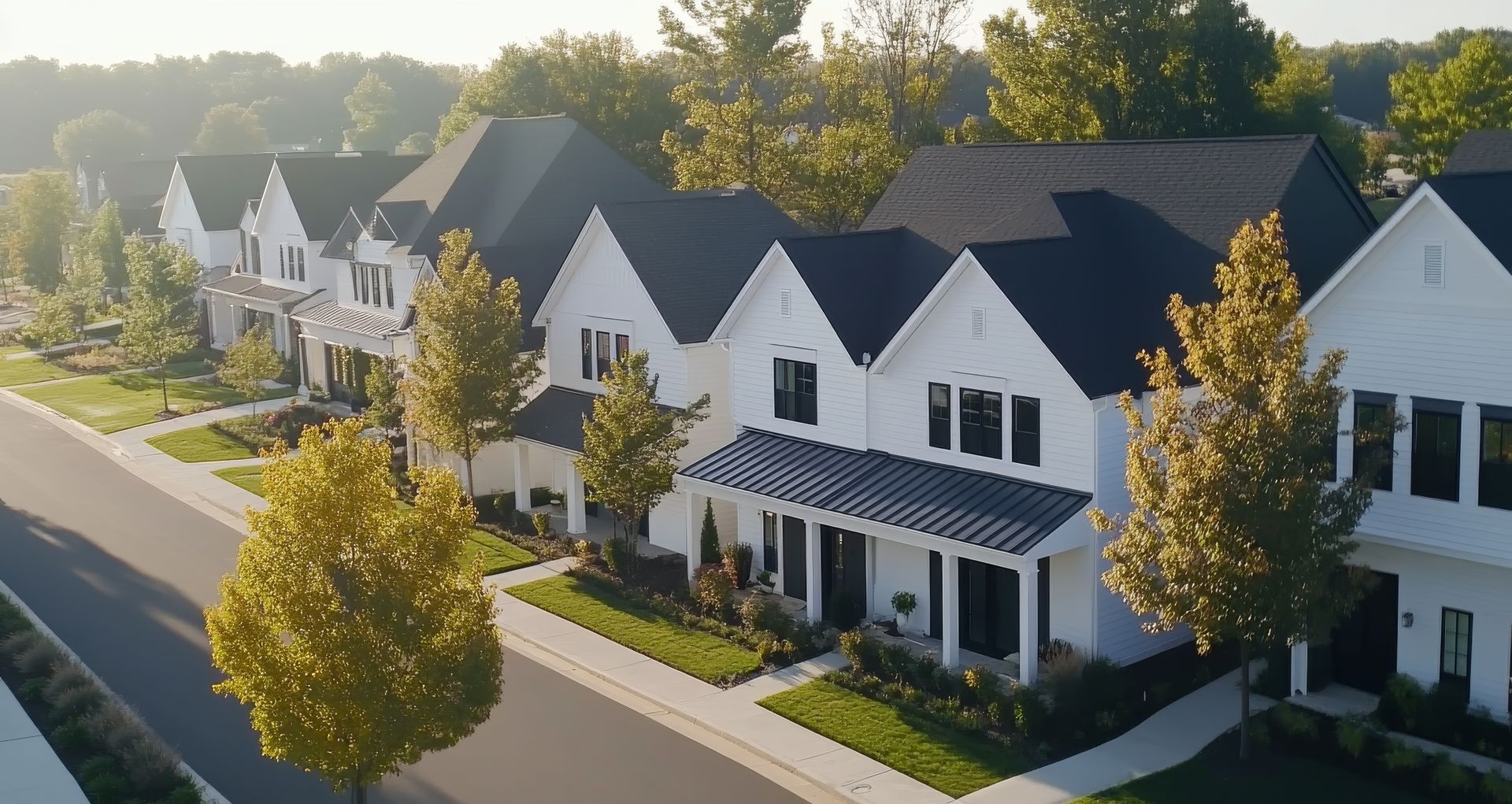A Guide to Understanding Home Values in Different Georgia Areas
Georgia's real estate landscape is as diverse as its rich history and varied topography, featuring bustling urban centers, charming suburbs, and serene coastal towns. The state's economic growth, geographic diversity, and cultural heritage significantly influence real estate trends, making it a desirable location for potential homeowners.
Georgia's economic expansion and job opportunities have made it a hotspot for many potential homeowners. The presence of reputable school districts and educational facilities also plays a significant role in determining home values. Access to amenities and infrastructure, alongside the historical and cultural significance of neighborhoods, further shapes the real estate market. Recent developments and urban planning initiatives continue to impact property values, making it essential to stay informed about the latest trends.
Atlanta: The Center of Georgia's Real Estate Market
Atlanta stands at the center of Georgia's real estate market. Known for its vibrant economy and cultural scene, Atlanta's property values vary widely across neighborhoods. The tech industry and numerous corporate headquarters have contributed to the city's growth, influencing real estate trends. Compared to its suburbs, Atlanta offers a unique blend of urban living with diverse housing options.
Marietta: A Suburban Gem
Marietta, a suburban gem, boasts a distinctive housing market characterized by historical significance and community development. Its appeal lies in the suburban lifestyle it offers, with property values reflecting its rich history and community-centric atmosphere. In comparison to Atlanta, Marietta provides a quieter, more residential setting, making it attractive to families and individuals seeking a suburban lifestyle.
Lawrenceville: Growth and Development
Lawrenceville, located in Gwinnett County, is experiencing notable growth in its real estate market. The area's development is fueled by its strong school systems and community facilities, which enhance its appeal to homebuyers. Gwinnett County's continuous growth trends indicate promising prospects for Lawrenceville's real estate future. The downtown area is undergoing revitalization, attracting new businesses and dining options that add to the community's charm.
Lawrenceville benefits from strategic transportation links that connect it to Atlanta and other major cities, making it an attractive location for professionals seeking a suburban lifestyle. These factors, combined with a growing job market, suggest that Lawrenceville will continue to be a hotspot for real estate investment.
Decatur: History Meets Modern Living
Decatur offers a unique real estate market that combines history with modern living. The preservation of historical sites in Decatur enhances its charm, influencing home values positively. The community's vibrant culture adds to its desirability, setting it apart from other nearby areas.
Emerging Markets: Cumming and Canton
Emerging markets like Cumming and Canton are gaining attention from homebuyers. Cumming's real estate market is growing, driven by factors such as affordable housing and community development. Similarly, Canton is emerging as a sought-after area due to its rising property values and future potential.
Savannah: Coastal Charm and Real Estate
Savannah, with its coastal charm, presents a unique real estate market influenced by its historical significance and tourism industry. Coastal living contributes to property values, offering a distinct contrast to inland cities like Atlanta and Marietta. The city's well-preserved architecture and tree-lined streets create an appealing environment for both residents and investors. Savannah's vibrant arts scene and annual festivals draw numerous visitors, further boosting the demand for vacation rentals and second homes. As the city continues to grow, its blend of historic allure and modern conveniences makes it a sought-after destination for those looking to invest in real estate.
The Role of Transportation and Connectivity
Transportation and connectivity play a pivotal role in determining property values across Georgia. Major highways and public transit systems enhance accessibility, impacting real estate trends. Future transportation projects are likely to further influence property values, with connectivity varying across different areas. Proximity to major transportation hubs, such as airports and train stations, often results in higher property demand as they provide convenience for commuters and travelers.
Planned expansions and improvements in public transportation can lead to increased interest in previously overlooked neighborhoods, potentially transforming them into thriving communities. As Georgia continues to invest in its transportation infrastructure, these developments are expected to reshape the landscape of the real estate market.
Demographic Shifts and Socioeconomic Factors
Demographic shifts and socioeconomic factors also shape Georgia's real estate market. Analyzing population growth and migration patterns reveals their impact on housing demand and property values. These demographic trends underscore the need for homeowners to stay informed about changes affecting the market.
Comparative Analysis: Georgia vs. Pittsburgh, PA
Comparing Georgia's real estate market with Pittsburgh, PA, offers valuable insights. While both regions have unique characteristics, understanding their similarities and differences can provide lessons for Georgia homeowners. Factors such as economic conditions and urban development contribute to the variations in property values between these regions.
Expert Opinions and Local Insights
Expert opinions and local insights provide valuable perspectives on Georgia's real estate market. Interviews with real estate experts, homeowners, and community leaders shed light on current trends and future prospects. Diverse viewpoints offer a comprehensive understanding of the market dynamics at play.
Future Trends and Predictions
Looking ahead, experts predict several trends that could shape Georgia's real estate market. Potential challenges and opportunities lie ahead for homeowners, with technology and innovation playing a crucial role in the market's evolution. Homeowners can adopt strategies to maximize their property value in this ever-changing landscape.
The Influence of Cultural Heritage and Geographic Features
Georgia's cultural heritage and geographic features significantly influence its real estate market. Local attractions, community events, and festivals draw homebuyers, impacting housing demand. These cultural and geographical references highlight the unique aspects of Georgia's real estate landscape.
Understanding the intricacies of Georgia's real estate market requires a comprehensive approach that considers economic, cultural, and geographical factors. Each area within the state offers unique opportunities and challenges for homeowners, from the bustling urban centers to the serene coastal towns. Staying informed about local trends and developments can help homeowners make informed decisions and maximize their property's value.
For personalized insights and assistance with navigating Georgia's real estate market,
contact 360 Home Offers today. Our team of experts is ready to provide guidance tailored to your needs, helping you make the most of your home buying or selling experience.











